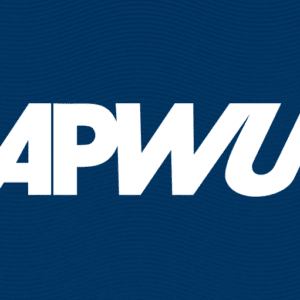January 9, 2008
Union President Asks Locals, States To Seek Support for Subcontracting Legislation
APWU President William Burrus has asked the union’s state and local presidents to encourage APWU members to write to their U.S. representatives and ask them to co-sponsor and support the Mail Network Protection Act (H.R. 4236). The bill, introduced by Rep. Stephen Lynch (D-MA) on Nov. 15, 2007, would require the Postal Service to bargain with postal unions before it engages in significant subcontracting.
Seven U.S. Representatives have signed on as co-sponsors. They are: Yvette Clark (D-NY), Al Green (D-TX), Raul Grijalva (D-AZ), Patrick Murphy (D-PA), Laura Richardson (D-CA), Christopher Smith (R-NJ), and John Tierney (D-MA).
In a letter to the state and local union presidents, Burrus said that winning additional co-sponsors for the bill “must become a top priority” for APWU activists. “It is imperative that union members contact their representatives and let them know that this bill is important to the future of the Postal Service and to postal workers.” He included a sample letter union members could send to their legislators.
Rep. Lynch also has asked his House colleagues to co-sponsor the legislation. In a Dec. 11, 2007, letter to fellow representatives, he outlined the importance of the legislation in maintaining the security of the mail network.
“The United States Postal Service, which serves over 141 million homes and businesses six. days a week has been increasingly outsourcing many of its core functions, including mail processing and mail handling to private entities,” Lynch wrote. “Notably, in November of last year, the Postal Service outsourced the processing of military parcel mail headed to Iraq and Afghanistan, work previously performed by career postal employees in New Jersey.”
While noting that contracting out core postal functions impacts “the allocation of work,” he said that “this alarming trend bears much broader implications in terms of compromising the security of the U.S. mail network.
“Privately-contracted employees possess significantly less training and experience than career postal employees and are not subject to the same hiring standards and procedures used by the Postal Service,” Lynch observed. “More specifically, they do not possess the training or experience necessary to safeguard the mail, fellow employees, and the public against biohazards, mailed explosives, and other dangers that may impact the U.S. mail network.
“For this reason,” Lynch wrote, “it is imperative that the Postal Service consider all available options before deciding to subcontract core postal functions.”
On Dec. 18, 2007, Burrus also wrote to U.S. Representatives, asking them to co-sponsor and support the bill. Burrus noted that the Postal Service had begun “to travel resolutely down the road of privatization – without authorization from Congress.”
In testimony before House and Senate committees in April and July, however, the union president urged legislators to avoid intervening in specific contracting-out initiatives proposed by the Postal Service. “Instead, I encouraged Congress to require the Postal Service to bargain with the unions that represent the employees who would be affected by such initiatives, prior to making substantial contracting-out decisions,” Burrus wrote in the letter, which was co-signed by APWU Legislative Director Myke Reid.
“In this way, Congress could ensure that USPS contracting-out decisions would be scrutinized by the workers most directly affected.”
“Too often, contracting out costs the Postal Service more than if the work were performed by postal employees. Frequently, subcontracting is ineffective, and contractors’ service to the public is poor,” Burrus said.
H.R. 4236, the Mail Network Protection Act of 2007, would require the Postal Service to bargain with affected unions before entering into contracts involving mail processing, mail handling, or surface transportation of mail, if the contracts involve the equivalent of $5 million or 50 work-years over a 12-month period.



